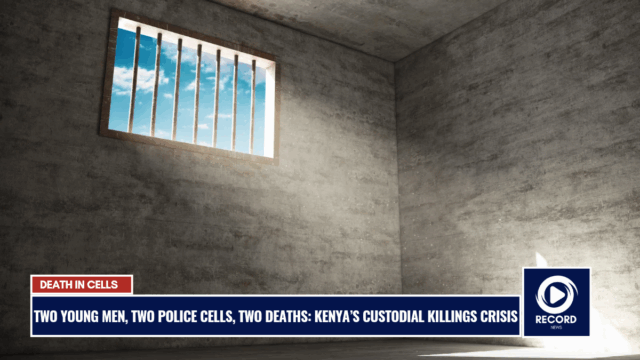On September 18, 34-year-old Samson Ouma Wanda, a resident of Tuwan Ward in Kitale, was killed inside Kitale Central Police Station. Days later, on September 21, 26-year-old Simon Warui disappeared from Umoja in Nairobi. By September 25, he was dead inside Central Police Station, Mombasa.
The official explanation in Warui’s case was that he “fell from a wall in the cells.” In Wanda’s case, silence and fear surround the family. Both men are now dead, their families shattered, their children left without fathers.
These are not isolated incidents. They are part of a pattern that has plagued Kenya for years. Police cells, meant to be places of detention, have become sites of death. Custodial killings are increasingly normalized, wrapped in flimsy explanations and official denials.
Warui leaves behind a young wife and a three-year-old child. Wanda leaves behind a grieving family in Kitale. Both deaths speak to a wider crisis: the State has allowed law enforcement to operate as executioners, with little accountability.
From Baby Pendo’s killing in Kisumu to the custodial death of Albert Ojwang, Kenyans have seen this script before: arrest, unexplained death, and an attempt to rewrite the truth. The common thread is impunity.
A government that kills its citizens in custody cannot claim legitimacy. It does not rule by law. It rules by fear. Each body that leaves a police cell in a coffin is a reminder of how far the State has strayed from justice.
Kenyans should be outraged. Samson Ouma Wanda and Simon Warui are not statistics. They are lives stolen, families broken, futures erased. Their blood, like that of so many before them, will forever stain the conscience of this country.















